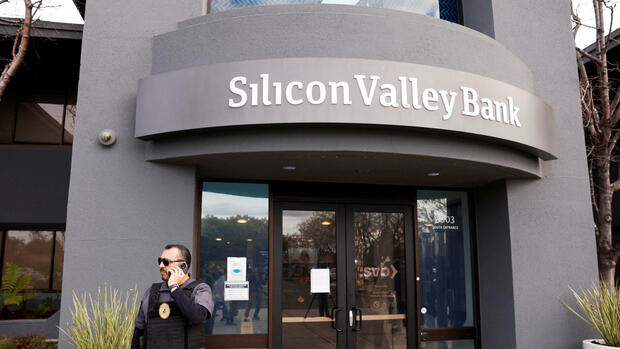Frankfurt The financiers of the German start-ups are regaining confidence for the future. This can be seen from the investor barometer, which is compiled jointly by the KfW development bank and the BVK industry association, as well as the Deutsche Börse Venture Network. According to the survey, the business climate in the venture capital (VC) market improved by a total of 7.6 points in the first quarter to a new level of minus 34.9 points.
However, the market climate remains negative. While the current situation is still assessed as rather bad, business expectations for the coming months have improved significantly.
“VC business expectations have improved significantly, so the market seems to be assuming that the worst is behind us. A good signal for start-ups that need fresh capital,” says Fritzi Köhler-Geib, Chief Economist at KfW. The collapse of the Silicon Valley Bank, which was also one of the financiers for young companies in Germany, had a negative effect in the first three months.
The feared massive upheavals on the international VC markets did not materialize and the SVB bankruptcy was quickly dismissed. Nevertheless, it can be assumed that it had a negative impact on the German VC business climate in the first quarter. Otherwise, according to the assessment of the investor barometer, it has probably recovered more strongly than expected.
Hopes that the central banks would cut interest rates also initially evaporated at the beginning of 2023. The high inflation rates made new interest rate hikes necessary. This pushed the mood of VC investors regarding the interest rate level on the capital markets to a new record low, the sub-indicator fell to a new record minus of 100.5 points.
Launching new funds has become more difficult
The rapid turnaround in interest rates in recent months has brought great uncertainty to the financier ecosystem. Although there are now concrete expectations of the end of the interest rate hikes as to how the capital markets and investors will react to interest rate developments, it is not possible to foresee.
In recent years, institutional investors such as pension funds and insurance companies have invested heavily in venture capital, and the percentage of total asset allocation is now high. It is therefore likely to become more difficult to set up new funds in the future. The fundraising climate remains correspondingly frosty, according to the explanation of the investor barometer.
The lenders positively assess the lower company valuations, which make it cheaper to enter innovative business models. However, the low mood with regard to value adjustments in existing commitments has hardly changed. For start-ups that had their last round of financing in 2022 at the then high valuations and are now looking for follow-up financing, the pressure to write down would continue. “In the current valuation environment, there are attractive entry opportunities for investors,” says Ulrike Hinrichs, Executive Board Member of BVK.
Crises also offer opportunities for investors
After its crash last year, the exit climate picked up again in the first quarter of 2023 and improved significantly. With a view to so-called trade sales – i.e. the sale of holdings to industrial addresses – expectations are thawing somewhat. However, the window for IPOs still appears to be firmly closed. “The fundraising and exit climate, which are primarily burdened by the interest rate situation and the economy, remain problem children. However, if reports of success follow in the course of the year, the mood should pick up again,” says Hinrichs.
>> Read here: Greenhouse start-up Infarm continues to shrink and leaves Europe
According to experts, times of crisis always offer special opportunities. Some of venture capital’s best results have come from investments in companies formed under subpar market conditions, write Brijesh Jeevarathnam and Morgan Holzaepfel, both partners at Adams Street Partners, a US investment manager, in their latest VC Outlook.
In her view, crises can promote the resilience of the start-up ecosystem. As an example, they cite venture capitalist Benchmark, which was an early investor in ride-hailing service Uber and Snap (social media) amid the recent global financial crisis. Today, listed companies are worth billions.
More: Investors’ club considers sustainable investments to be crisis-proof – but uniform standards are still missing
